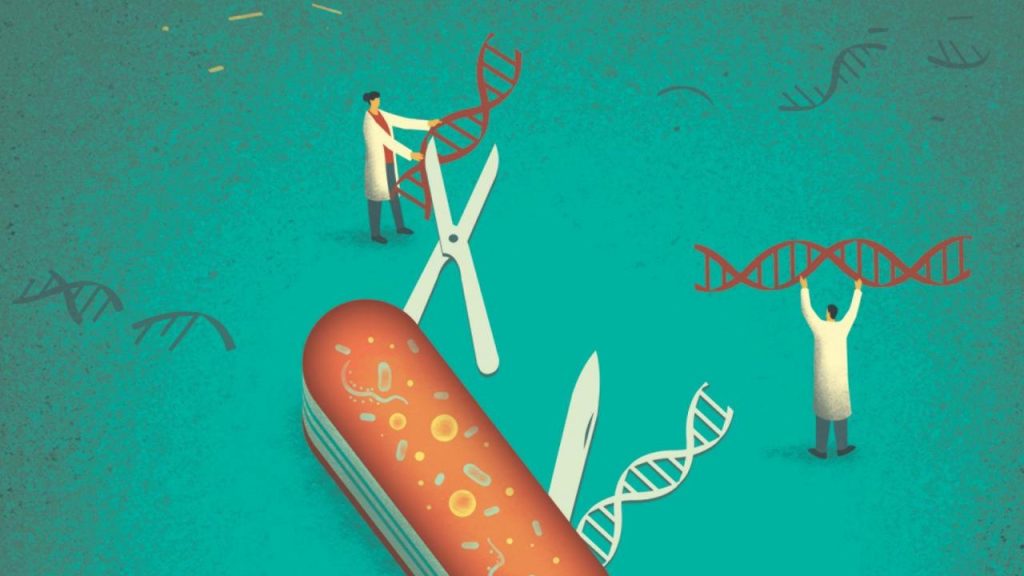Americans remain divided about using gene editing technology to reduce children’s risks of serious diseases. Americans with strong religious commitment are more likely to oppose this use of the technology.
Scenario 2 offers an effective solution for the normative problem of subjecting descendants to unknown long-term effects without their knowledge and consent, yet does so by bypassing ethical considerations. Therefore, this should be avoided.
Humans
Gene editing may offer hope for treating many genetic diseases that are passed from parent to offspring; by rewriting DNA in affected cells and fixing mutations it could potentially offer treatments. It could even repair one mutated gene at a time – something no other approach can achieve.
But gene editing can do much more: scientists are investigating ways of editing germline cells to produce healthy babies who won’t carry inherited traits associated with certain diseases – an ethical dilemma given that future generations cannot provide consent for treatment.
Researchers are exploring the potential of gene editing to enhance individuals, making them faster, smarter or stronger. Again this raises ethical concerns; such a practice seems to breach non-maleficence (not harming anyone) principles; taking an approach rooted in justice would mean we could never justify using gene editing in ways which increase social advantage over others as this would diminish their dignity and decrease fairness between people.
Animals
The academic discourse surrounding genome editing is driven by different actors, from scientists engaged in research to those working in ethics, philosophy and social sciences. Unfortunately, as Table 1 indicates, most authors covering this topic are either biomedical or veterinary researchers; such low representation from other disciplines should be of great concern as academic experts have an outsized effect on science and technology policy decisions and governance arrangements.
Animal welfare concerns were frequently voiced regarding certain applications of genome editing. Primarily because such projects might use animals for purposes other than their intended ones (i.e. reviving extinct species or altering physiological limits and thus diminish animal capacities), genome editing applications should be avoided as much as possible.
Other arguments included animal dignity and species-specific capacities of extinct animals being brought back to life for human entertainment purposes or even just revival. Reviving extinct animals violated species norms.
Environment
There are thousands of genetic diseases – from cystic fibrosis to sickle cell anaemia – which are transmitted from one generation to the next, making gene editing a potential means for correcting molecular errors and saving lives by preventing disease transmission.
But this technology is much more than an inexpensive Swiss Army knife for altering DNA; it is opening new scientific frontiers and raising serious ethical concerns.
Scientists are employing genome editing technology to make crops more resistant to climate change, which reduces the need for expanding farming on undeveloped land, which contributes substantially to greenhouse gas emissions.
Innovation in food farming is also helping reduce food waste, by making fruits and vegetables less prone to spoilage and decreasing water usage during production. Furthermore, deeper roots allow crops to capture more carbon for climate mitigation – all advances which improve people’s health, the environment, and farmer profits alike.
Ethics
Researchers are realizing the promise of gene editing. Farmers are using it to produce seedless tomatoes, gluten-free wheat and mushrooms that don’t brown when cut – as well as to experiment with crops that could produce more meat or fish or be resistant to diseases or drought – all developments with potential implications for global food security and the environment.
Gene editing technology could be used to correct genetic mutations that would then pass down through generations, or it could also be used to enhance healthy humans with enhanced abilities such as faster, smarter or stronger performance. But its use for enhancement raises ethical questions regarding what constitutes acceptable use based on principles such as proportionality and subsidiarity; policy makers should pursue applications only if there are no less harmful alternatives; scientists could conduct ethical parallel research in order to guide innovation processes more effectively.






More Stories
Integrating Digital Twin Technology for Small-Scale Manufacturing and Logistics
The Developer’s Guide to Post-Quantum Cryptography Implementation
Smart Home Automation for Renters: Your Guide to a Smarter, Temporary Space